
Is your acne hormonal or bacterial? Expert dermatologists share
Acne can have several different causes, and the best acne treatment depends on determining the type of acne you have. By identifying the acne type and treating its underlying cause, you can stop further outbreaks and achieve clearer, healthier skin.
To help you take control of your acne, we’re sharing a dermatologist-approved guide to identifying and treating hormonal and bacterial acne.
About hormonal acne
Hormonal acne is triggered by a hormonal imbalance, particularly an increase in male-dominant hormones called androgens. The fluctuation prompts the sebaceous glands to produce more oil, which may clog pores and foster bacterial growth, resulting in acne.
Hormonal acne often appears as deep red and tender cysts and typically develops in the lower parts of the face, such as the jawline, chin, neck, or cheeks. Teenagers and women are most likely to develop hormonal acne, especially during menstruation, pregnancy, and menopause.
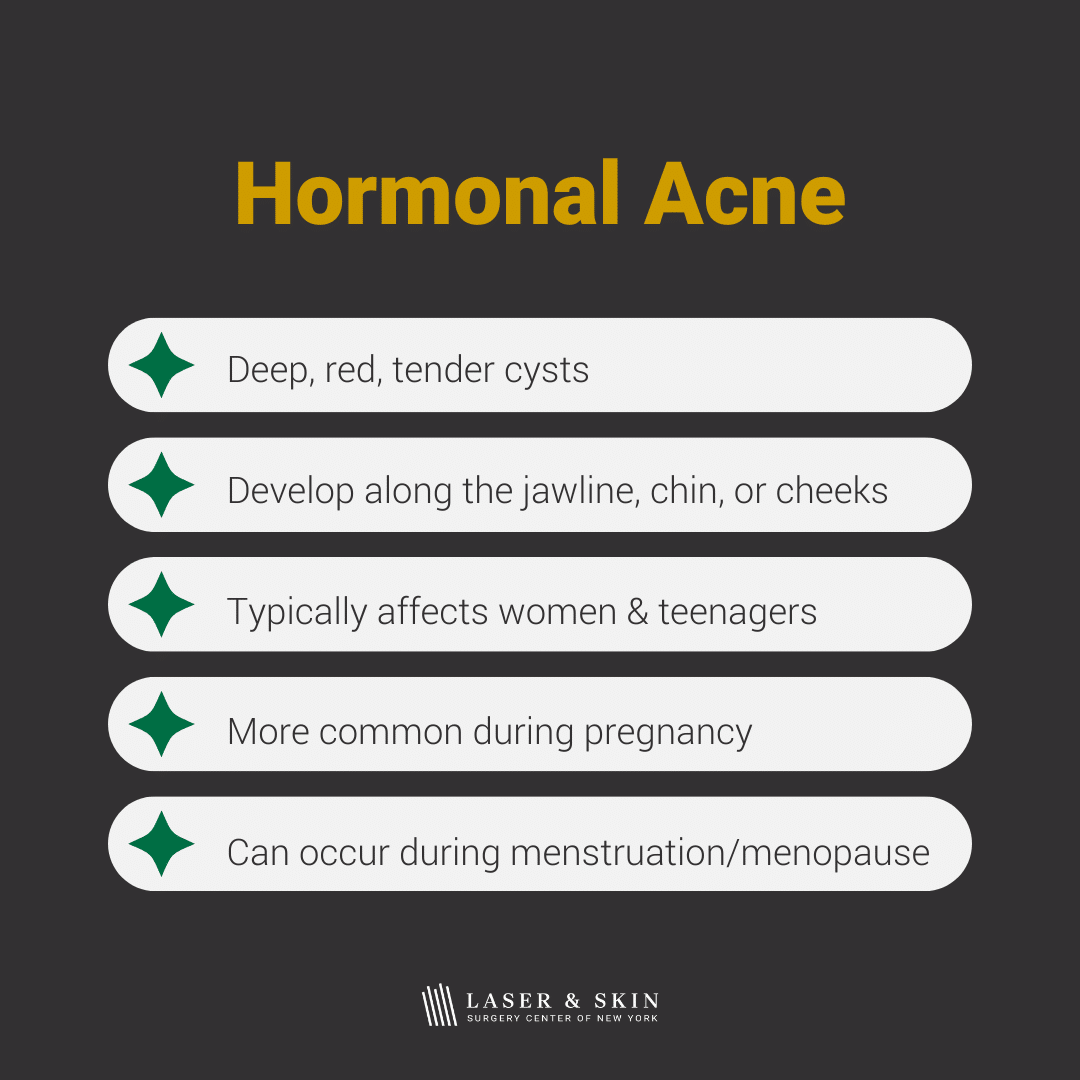
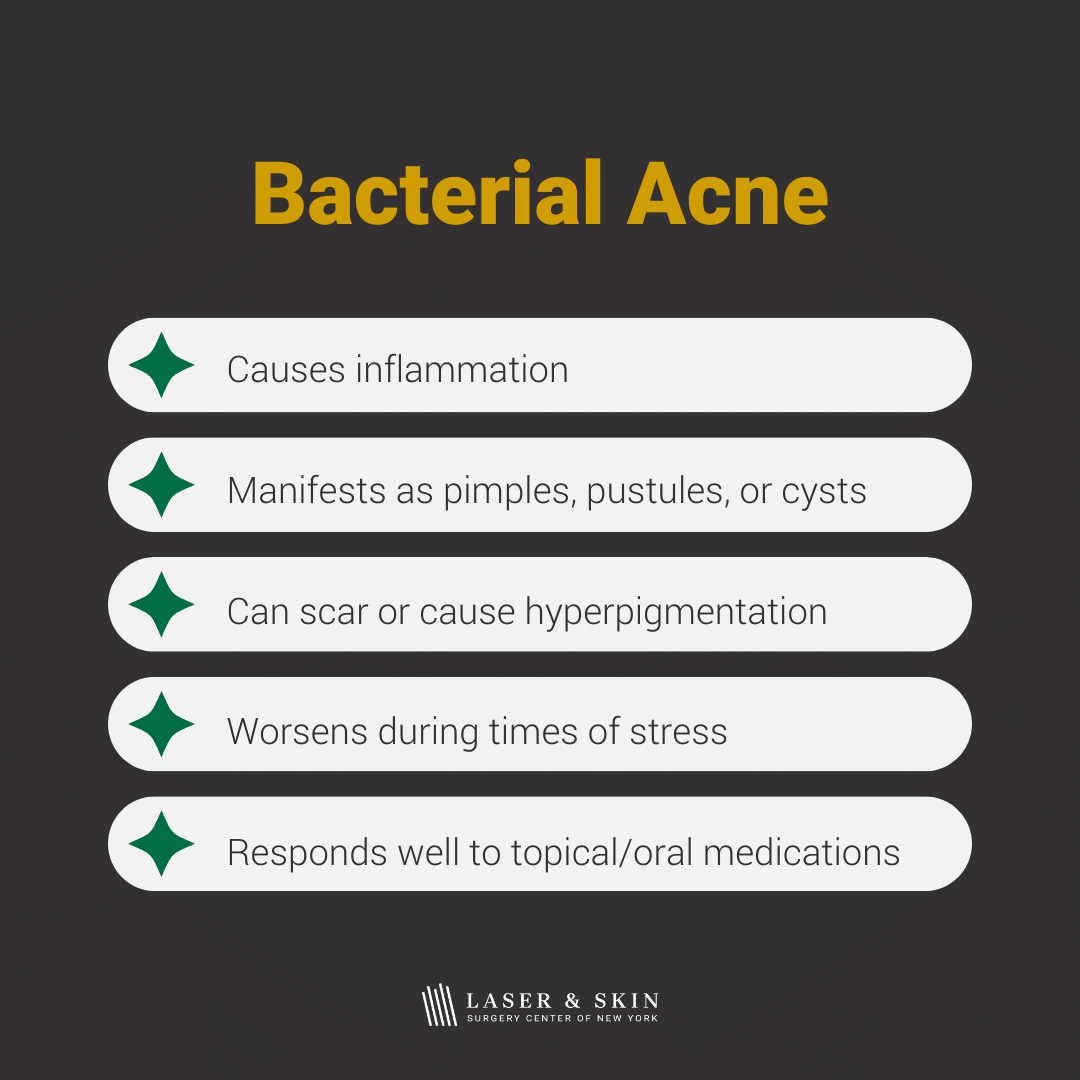
About bacterial acne
The overgrowth of bacteria on the skin is the root cause of bacterial or inflammatory acne. Bacterial organisms are normal skin inhabitants but, when they grow excessively, can cause inflammation that leads to pimples and cysts. Bacteria can inflame the hair follicle and cause lesions that are red, swollen, and filled with pus. Bacterial acne has the potential to scar or cause pigmentation.
How do I know if I have hormonal or bacterial acne?
Hormonal
- Most likely to appear in women and teenagers
- Typically develops on the lower face and jawline
- Usually occurs during pregnancy, before menstruation, during ovulation, and menopause
- Manifests as deep, painful cysts
- May be accompanied by irregular periods, excessive hair growth, or hair loss
- May not respond well to conventional treatments, like topical medications and antibiotics
Bacterial
- Typically develops on the forehead, nose, and chin, which are oily skin regions
- Appears as red, tender, and inflamed cysts, pustules, and pimples
- May be present at any time, but typically worsens during times of stress or
- hormonal fluctuations.
- Often responds favorably to topical and oral medications that target the infection-causing bacteria
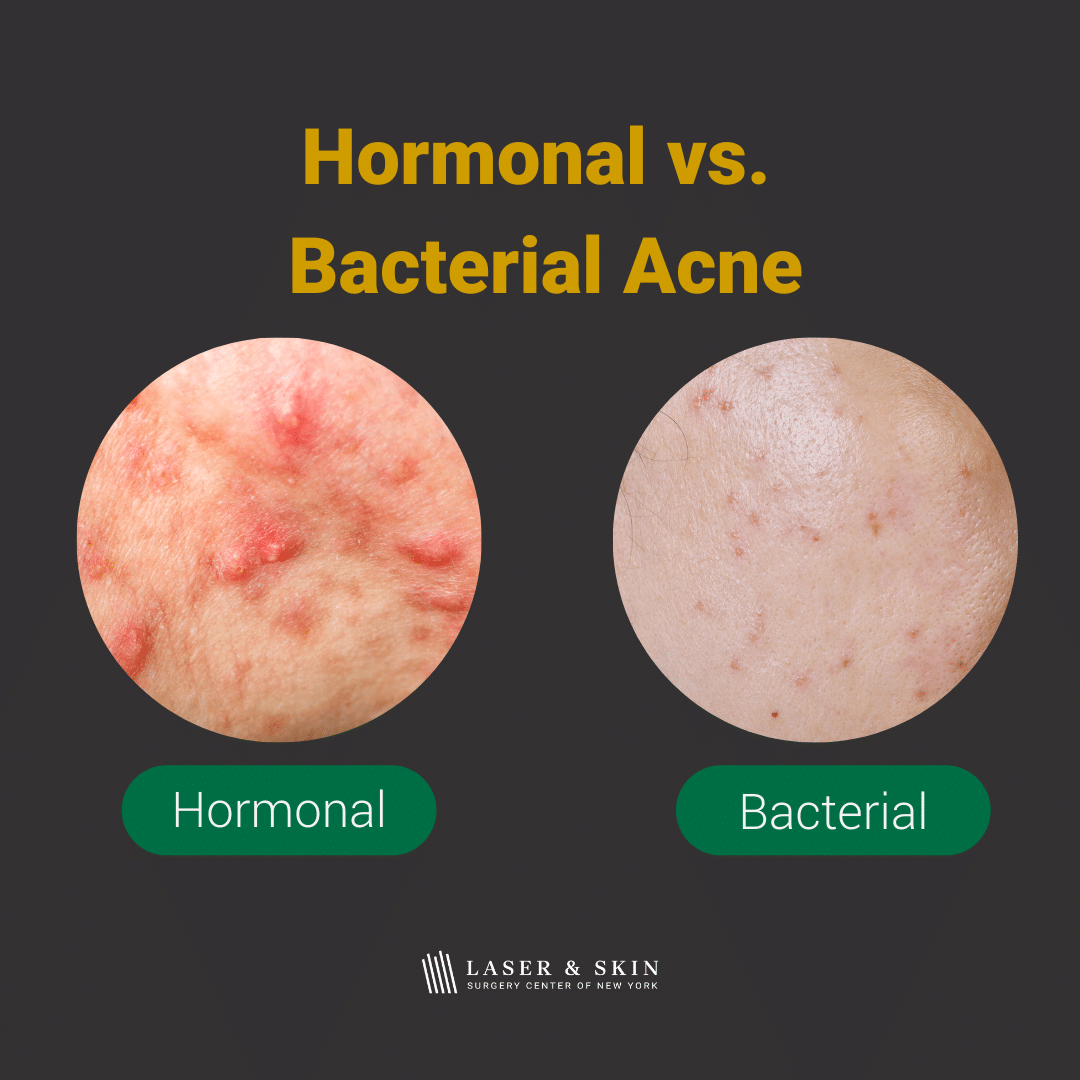
A board-certified dermatologist can evaluate your skin and consider your medical history and symptoms to determine whether you have hormonal or bacterial acne. Your dermatologist might recommend a blood test to assess your hormone levels, skin swabs, and other tests to check the bacterial composition in your pores.
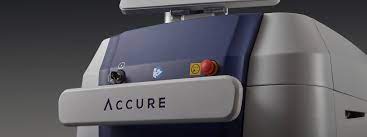
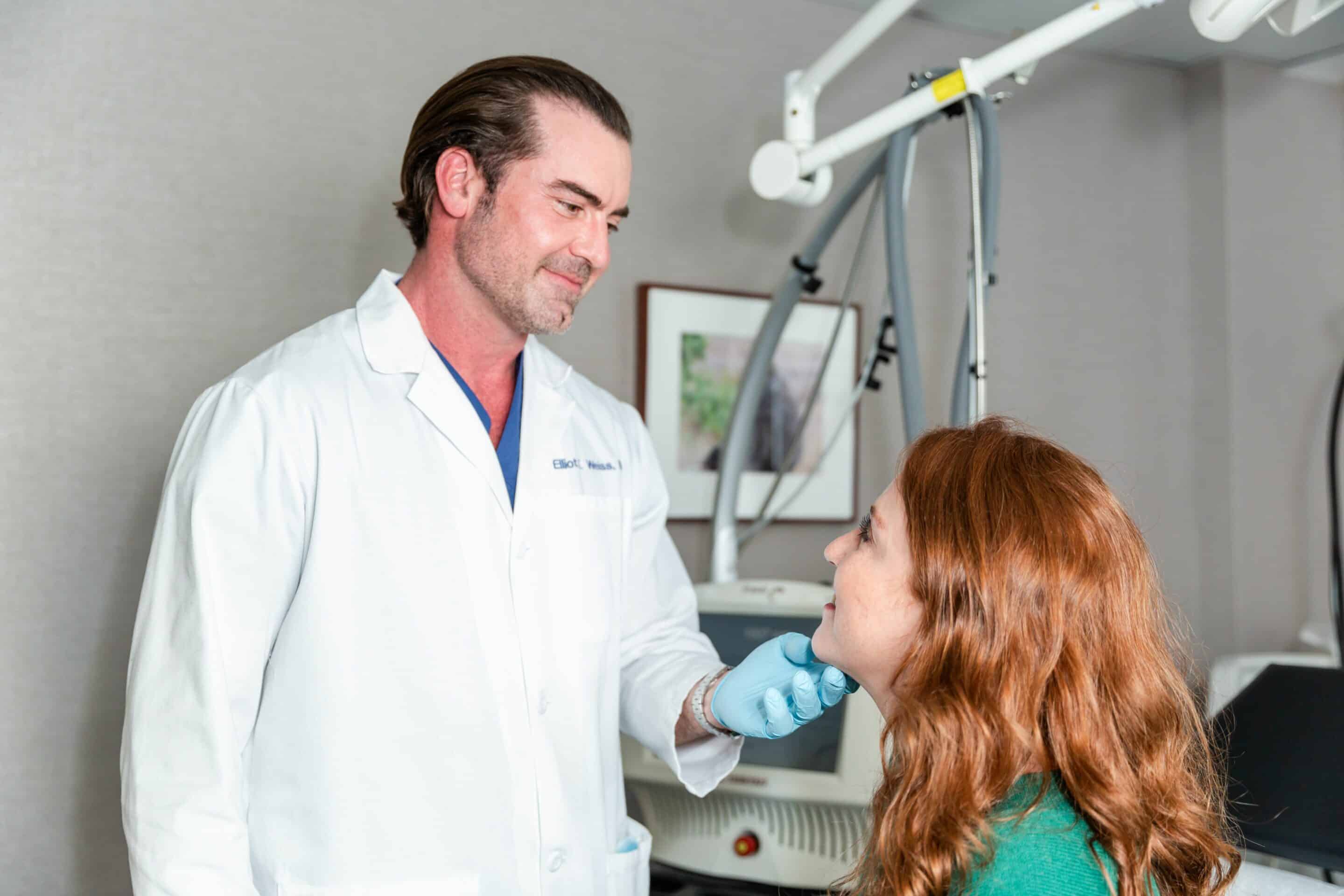
Best treatments for hormonal acne
Common treatment options for hormonal acne are:
Accure
This light-based therapy targets overactive oil glands to reduce acne and the frequency of breakouts. This treatment can also reduce inflammation, pain, and discomfort associated with acne and is an ideal treatment option when topical products and antibiotics no longer produce results.
Laser & Skin Surgery Center of New York is one of the only centers to offer this innovative device. Accure targets acne at the source for longer-lasting clear skin with treatments take take only 30 minutes to one hour.
Topical treatments
Medications containing retinoids, benzoyl peroxide, spironolactone, and salicylic acid can reduce inflammation and prevent clogged pores and bacterial overgrowth.
Birth control pills
These medications help stabilize hormone levels and reduce testosterone.
Lifestyle factors
Getting enough sleep, reducing stress, drinking lots of water, and avoiding dairy and sugar can help prevent acne.
Best treatments for bacterial acne
Treatment for bacterial acne has a more straightforward approach and typically requires topical or oral medications. Options include:
Retinoids
This type of prescription topical medication works by increasing cell turnover. It can also prevent the formation of acne and reduce the appearance of acne scars.
Benzoyl peroxide
This topical over-the-counter medication works by killing bacteria and helping pores shed dead skin cells and excess sebum.
Salicylic acid
Another over-the-counter topical treatment that works by reducing inflammation and unplugging blocked skin pores to allow pimples to shrink.
Oral medications/Antibiotics
Tetracycline, doxycycline, and minocycline reduce bacteria and inflammation.
Accure
Accure can also target bacterial acne, delivering a dynamic approach for skin rejuvenation that minimizes the appearance of papules, whiteheads, blackheads, and other forms of acne.
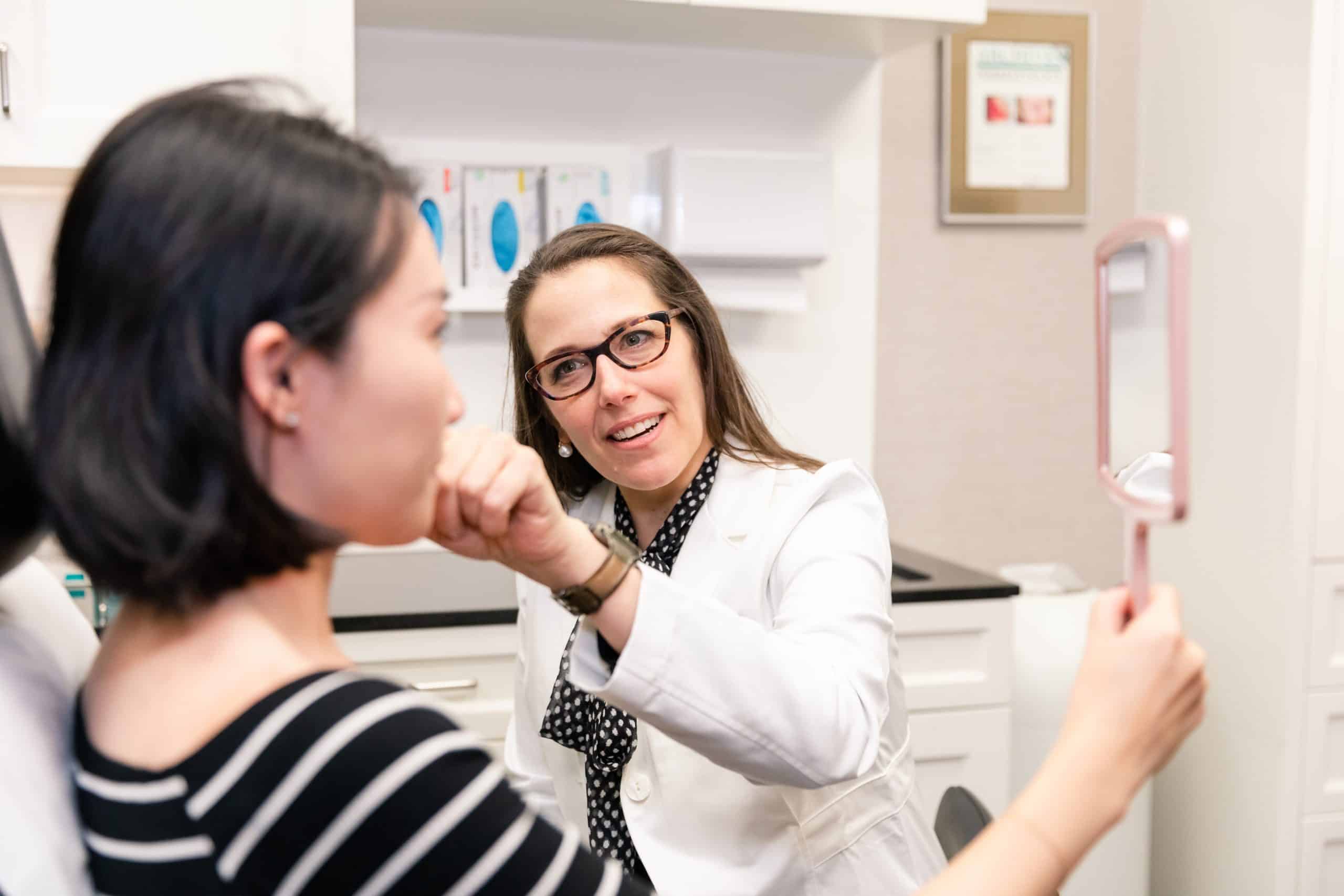
What about fungal acne?
Bacterial acne and fungal acne may look similar, but fungal acne isn’t acne. It is an infection caused by an overgrowth of yeast, a type of fungus. When the infection causes the hair follicles to get inflamed, acne-like symptoms occur, including small, red bumps, whiteheads, and pustules (small pockets of yellow or white pus).
Fungal acne and bacterial acne respond well to many over-the-counter products. Antifungal creams and ointments, including ketoconazole and butenafine, are common treatment options. If these products don’t work, your dermatologist can prescribe an oral medication, such as itraconazole or fluconazole, to target the hair follicles and eliminate the infection
Schedule a professional acne treatment in New York
Laser & Skin Surgery Center of New York offers comprehensive treatments for skin rejuvenation, including acne and acne scar treatments. Our prestigious center has more than 100 lasers and devices to treat most skin conditions and concerns. Our board-certified dermatologists provide expert care and customized treatment plans to produce natural and beautiful results.
Our New York practice has an in-house research center to study the most advanced medications and devices to provide our patients with the safest and most effective acne treatments. Contact us to schedule a consultation and learn more about bacterial acne, fungal acne, and hormonal acne treatments.
Next, read about…
The Ultimate Guide to Laser Treatment for Shrinking Pores
Homepage // Blog / The Ultimate Guide to Laser Treatment for Shrinking PoresLaser treatments can effectively address many skin concerns, including the appearance of large pores. Let’s explore various laser treatments to help shrink pores on the face and give you...
Is It Safe? Cosmetic Dermatology Treatments & Pregnancy
Homepage // Blog / Is It Safe? Cosmetic Dermatology Treatments & PregnancyCosmetic dermatology treatments aim to enhance your appearance and boost confidence, but pregnancy may impact their suitability or require special considerations. If you’re expecting, taking...
Laser Skin Lightening: Unveiling Your Inner Radiance
Homepage // Blog / Laser Skin Lightening: Unveiling Your Inner RadianceLasers can lighten blemishes or darker patches of skin by targeting the skin’s outer layer or breaking down its pigment-producing melanin. Patients with age spots, melasma, and overall sun damage...
The post Is your acne hormonal or bacterial? Expert dermatologists share appeared first on Laser NY.
from
https://www.laserskinsurgery.com/is-your-acne-hormonal-or-bacterial-expert-dermatologists-share-2/
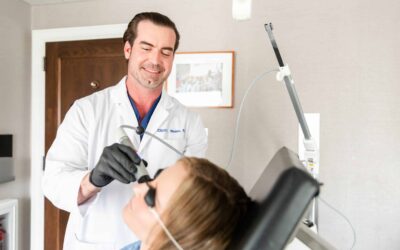

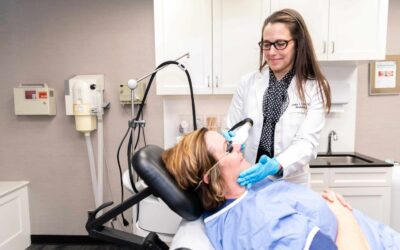

No comments:
Post a Comment